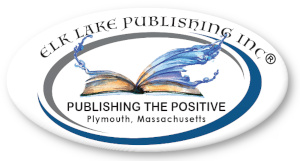Write A Book Worth Reading
by MM Beeman

How does an author write a book worth reading? That seems to be the target of so many, but in the eyes of the public, a target frequently missed. I know … not the most encouraging start to this piece, but a concern anyone who puts pen to paper (yes, I do it the old fashioned way) faces. How do you make your book stand out in a world where so many books jockey for position on bookstore shelves, in Kindle libraries, and in the hands of eager readers? I am not exactly a formulaic writer. I do not follow any checklists. I am frequently confounded by how Scrivener works. I often just write until I like my words. Although I cannot advise you to follow my formula, I can give you the driving focus behind my writing process. Pursue your passion. That’s the secret—the end.
I grew up playing organized sports and as a somewhat rebellious spirit, I chafed at all of the trite sayings that accompanied pregame speeches and half-time pep talks. I apologize if my statement impacts you in the same manner. My hope is you find the truth in the words as they relate to you and your writing. I know that realization was absolutely instrumental as I undertook the writing process. When I started writing Nick Banner & The Pharaoh’s Greed, I had absolutely no idea what form the story would take. My passion was to engage young readers who were often overwhelmed by overly long descriptions and slow developing storylines. I honestly did not even have a clear grasp of what my story would be about, but my passion was correctly pacing the action, and that is what I pursued as I built my story around that passion. Throughout the whole writing process, in every scene, I asked myself, “Did I just lose a reader?” This helped me to cut scenes, to streamline dialogue, and to keep the pacing as fast as possible. I had to constantly remind myself exactly why I was writing. This is where my experience fed into my story. I have been teaching students with behavioral disabilities for nearly ten years, so I am keenly aware of how easy it is to lose the attention and focus of young people. My reviews were often more up front and personal than any on Amazon or Goodreads and often were not edited for content. Enough about me.
Your job in the writing process is to find where this marriage exists in your own world. What are you passionate about? In what area do you have information and skills that give you a fresh voice and perspective? Are you a master gardener? Do you have a passion for history? Do you have the desire to build worlds? Are you a romance expert? How can you make that niche even more unique by meshing expectations with your experience and passions? What guiding questions can you keep in the front of your mind as you develop your story? Do not write for fortune or fame. Do not write because you think writing is a good idea. Do not write because of some elevated sense of self. Write because you are passionate about writing. Write because you and only you can present a story in the unique way that you do. Always have a purpose. Always understand your purpose. Do not abandon that purpose, even when peer reviewers, beta readers or family question your motives or story. Be willing to make changes, but never change your purpose. We write for our purpose and passion. That is what makes us who we are as authors. That is our integrity. Learn the writing process, take advice from editors and reviewers, edit vigorously, but above all else—pursue your passion.
To visit MM's website, click HERE.
Write A Book Worth Reading
by MM Beeman

How does an author write a book worth reading? That seems to be the target of so many, but in the eyes of the public, a target frequently missed. I know … not the most encouraging start to this piece, but a concern anyone who puts pen to paper (yes, I do it the old fashioned way) faces. How do you make your book stand out in a world where so many books jockey for position on bookstore shelves, in Kindle libraries, and in the hands of eager readers? I am not exactly a formulaic writer. I do not follow any checklists. I am frequently confounded by how Scrivener works. I often just write until I like my words. Although I cannot advise you to follow my formula, I can give you the driving focus behind my writing process. Pursue your passion. That’s the secret—the end.
I grew up playing organized sports and as a somewhat rebellious spirit, I chafed at all of the trite sayings that accompanied pregame speeches and half-time pep talks. I apologize if my statement impacts you in the same manner. My hope is you find the truth in the words as they relate to you and your writing. I know that realization was absolutely instrumental as I undertook the writing process. When I started writing Nick Banner & The Pharaoh’s Greed, I had absolutely no idea what form the story would take. My passion was to engage young readers who were often overwhelmed by overly long descriptions and slow developing storylines. I honestly did not even have a clear grasp of what my story would be about, but my passion was correctly pacing the action, and that is what I pursued as I built my story around that passion. Throughout the whole writing process, in every scene, I asked myself, “Did I just lose a reader?” This helped me to cut scenes, to streamline dialogue, and to keep the pacing as fast as possible. I had to constantly remind myself exactly why I was writing. This is where my experience fed into my story. I have been teaching students with behavioral disabilities for nearly ten years, so I am keenly aware of how easy it is to lose the attention and focus of young people. My reviews were often more up front and personal than any on Amazon or Goodreads and often were not edited for content. Enough about me.
Your job in the writing process is to find where this marriage exists in your own world. What are you passionate about? In what area do you have information and skills that give you a fresh voice and perspective? Are you a master gardener? Do you have a passion for history? Do you have the desire to build worlds? Are you a romance expert? How can you make that niche even more unique by meshing expectations with your experience and passions? What guiding questions can you keep in the front of your mind as you develop your story? Do not write for fortune or fame. Do not write because you think writing is a good idea. Do not write because of some elevated sense of self. Write because you are passionate about writing. Write because you and only you can present a story in the unique way that you do. Always have a purpose. Always understand your purpose. Do not abandon that purpose, even when peer reviewers, beta readers or family question your motives or story. Be willing to make changes, but never change your purpose. We write for our purpose and passion. That is what makes us who we are as authors. That is our integrity. Learn the writing process, take advice from editors and reviewers, edit vigorously, but above all else—pursue your passion.
To visit MM's website, click HERE.
